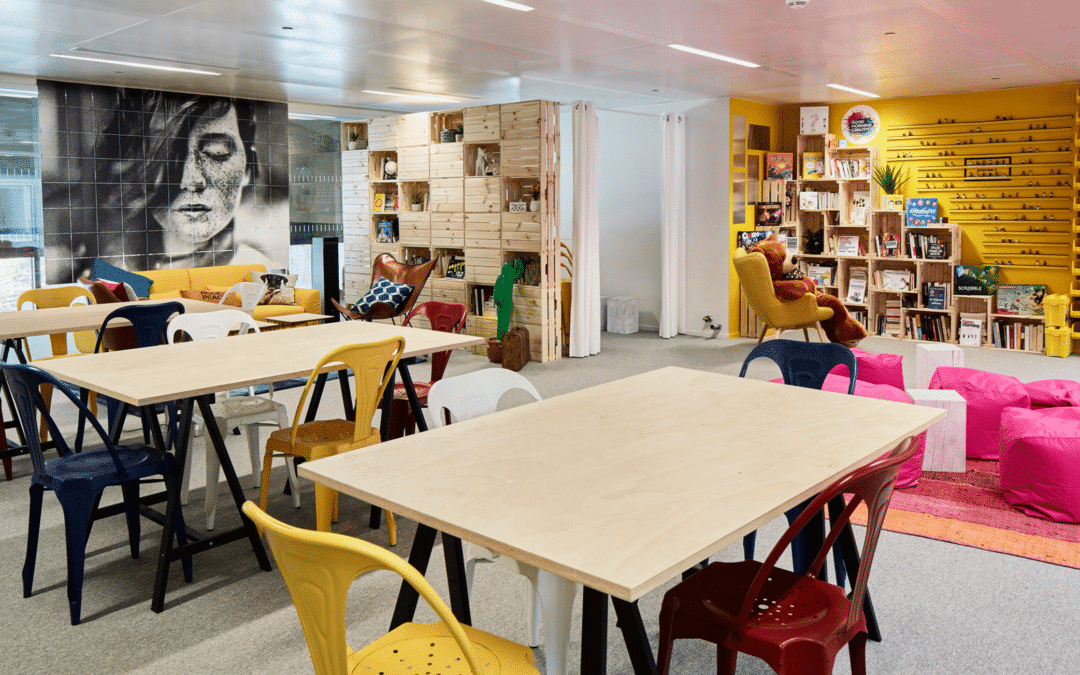We are approaching the end of the year 2022, an opportunity to reflect on the topics that will punctuate the daily life of human resources professionals in the coming months. Earlier this year, I shared with you some of the trends in terms of Advisory and priorities for HR managers. So we’re heading for 2023, with a year that promises to be relatively paradoxical, between the need for acceleration and the desire to control in a volatile, uncertain, complex and ambiguous environment. What are the HR trends for 2023? What are the future HR challenges? Let’s discover it together!
What are the 7 HR challenges in 2023?
HR Trend #1: Redefining the company to address the engagement crisis
A few weeks ago, I was invited to a lunch by the publisher Workday, to discuss with HR managers of large companies about the concept of engagement. The observation is the same everywhere: commitment implies many difficulties, at a time of distance, of the search for meaning, of the geopolitical or economic situation we are living.
For my part, I proposed to take the problem in a different way: the company is facing many transformative waves, and yet the organization as such has not undergone a real transformation. Rather than patching up each new challenge, the time has come to ask ourselves what constitutes a company today: is it a place of work? Are they values? Is it a reason to exist? Any customers? A culture?
All of these elements must be analyzed and discussed in light of the new context. Once this work is done, we will be able to address the issue of engagement with peace of mind, since our organization will be in the best position to understand who it is and how it accompanies its stakeholders.
Thus, behind the crisis of commitment lies a crisis of corporate identity.
HR Trend #2: Building the future of jobs with Strategic Workforce Planning
Several of our clients are in the process of integrating the subject of “Strategic Workforce Planning“. It is a method of long-term projection of jobs, skills and career paths once a need has been identified and without legal constraints. It is possible to apply it on a defined perimeter (BU/department, team impacted by a project) or for the whole organization if necessary. Thanks to this method, it is possible to set up action plans allowing the accompaniment of the employees towards new competences.
Why is this important? Notably because 85% of the jobs of 2030 do not yet exist according to “Pôle Emploi”. Between now and 2030, we will go through several phases of employee support in terms of skills, training and job (re)definition. We must also help managers to better anticipate their future recruitments, to update or create job descriptions, to build the professional ecosystem that will be necessary for these future jobs.
In order to better support companies, SQORUS has developed an offer dedicated to the subject, and we intervene for our customers in order to better understand the stakes, and the methodology to adopt for the most efficient implementation of a SWP project.
HR Trend #3: Anticipating the impact of immersive work environments on HR processes
Personally, I regularly speak in companies on the subject of the Future of Work and Metavers. Even if these last ones benefit from a sometimes excessive buzz, one thing is certain: the fusion of our virtual and real workplaces has begun.
Remote access has already caused many upheavals in companies, but interaction in virtual worlds allows for different interactions, an experience that implies adapting processes.
Before you find yourself overwhelmed by these innovations, start thinking about what it means to recruit and train in spaces where the employee experience is very different from the one we have in person, or via video conferencing software.
And if all this sounds futuristic, you should know that Microsoft and Meta recently signed a partnership agreement to ” enter the metaverse and build the future of remote meetings. The first immersive spaces will be deployed very quickly within Teams. And if you are a little intimidated by the meta-verse, you can start by looking at platforms like Refty which offers a gamified and immersive approach to recruitment.
HR Trend #4: Aligning HR Data strategy with company-wide data strategy
While large companies are well aware of the importance of data in the company, and most of them have created a Chief Data Officer, HR departments are now seriously tackling the HR data issue.
At SQORUS, our IT team already supports its customers on a daily basis in the following areas Business Intelligence (BI) & Analytics (Collection, centralization, modeling, restitution, analysis). And our HR Advisory team completes these expertises by accompanying the Human Resources Department on :
- Strategic consulting to align data policy with business strategy
- Assessing data maturity, including “data leaders” programs that combine training, individualized coaching and the creation of data communities
- Support for change, with diagnostics, specific communication plans, support for good practices and continuous improvement
Why is this alignment important? The HR function must fully embrace its role as a business partner in the service of the organization’s performance. It cannot work in silos, and must integrate its data strategy and culture with the general movement driven by the organization as a whole.
HR Trend #5: move from a “customer centric” to an “employee centric” logic
Having worked in digital marketing for part of my life, I have been able to observe the methods, innovation, and progress of many companies on the subject.
A few years ago, the Academy on Service began to install the concept of “symmetry of attention“, which puts people at the heart of the company’s project. It puts the quality of a company’s relationship with its employees on the same level as the quality of the relationship between that same company and its customers.
For our part, we suggest that you feed your HR reflections with what has made the customer experience successful, in order to apply it internally in a “Employee-Centric“: tools, approaches, logic…
HR Trend #6: integrate CSR skills into the HR function and increase employee awareness
No need for a long analysis to conclude that the topics related to CSR have become central to our society We only need to look at the climate, the studies (already in 2019, we could read in Les Echos that 56% of French consumers wanted companies to take a stand on social values), and the social tensions that are erupting around the world.
The urgency of the situation requires us to treat CSR not as a specific subject, as we did with digital, but as a component of all our actions: employer brand, corporate culture, training, management, diversity, hybrid QWL, etc.
And to be able to achieve this, the members of the HRD must become exemplary on the subject, and ensure a daily monitoring and a rise in competence. In this context, SQORUS has for example developed an offer that favors the development of a collaborative CSR strategy, HR & CSR training, assistance in making choices that take into account CSR criteria, and the development of your values into CSR commitment axes…
HR Trend #7: managing compensation policy in a time of inflation
It is impossible to conclude these trends without mentioning the global economic situation. In October 2022, for example, inflation in the European zone reached 10.7% year-on-year. In France, it was 6.2%. This leads, for example, the French government or certain unions to demand that wages be indexed to inflation.
The pressure is therefore strong on the compensation policy, and you will have to be innovative to succeed in retaining employees and maximizing your EVP (Employee Value Proposition). Some of the answers can be found, for example, in the company savings plan, in the financing of a sustainable mobility package, in the total or partial financing of cribs in day care centers, or in the co-financing of CESU for childcare or home-based employee expenses… but also in the intangible benefits that are part of your organization’s culture.
Conclusion of HR issues in 2023
In conclusion, if a large majority (82%) of HRDs declared themselves “close” to burn-out, and frustrated (76%) at the beginning of 2022 according to a payfit study, the multiplication of new challenges may not improve things.
Since time is not extensible, it is necessary to approach the HR function differently: by overhauling processes, digitizing existing systems, giving value back to time, developing a culture of adaptation to permanent change… to reduce the perceived weight of the subjects to be dealt with.
On this subject, SQORUS are there to assist you. Do not hesitate to contact us to discuss it.
DOWNLOAD THE WHITE PAPER
“WHICH TOOLS TO PILOT YOUR HR STRATEGY?”
Also read in our “HR strategy management tools” file:
- From “customer centric” to “employee centric
- Employee experience: why are HR and employees not aligned?
- What are the major issues facing HRDs today?
- Organization, talent management, recruitment: priority HR projects?
- Human resources management: what HR strategies for the future?
- Best practices to manage your HR strategy in an optimal way
- The different HR management tools to carry out your HR strategy
- HRIS software: the different areas of intervention for the HR function
- How to convince your management to invest in an HRIS tool?
- Is it necessary to be accompanied in the management of an HR strategy?
- What indicators should be defined to measure the performance of an HR strategy?
- HR strategy: how to achieve effective HR reporting?
- Who should drive HR projects in the company?
- Setting up a working group for an HR project: who should be involved?














